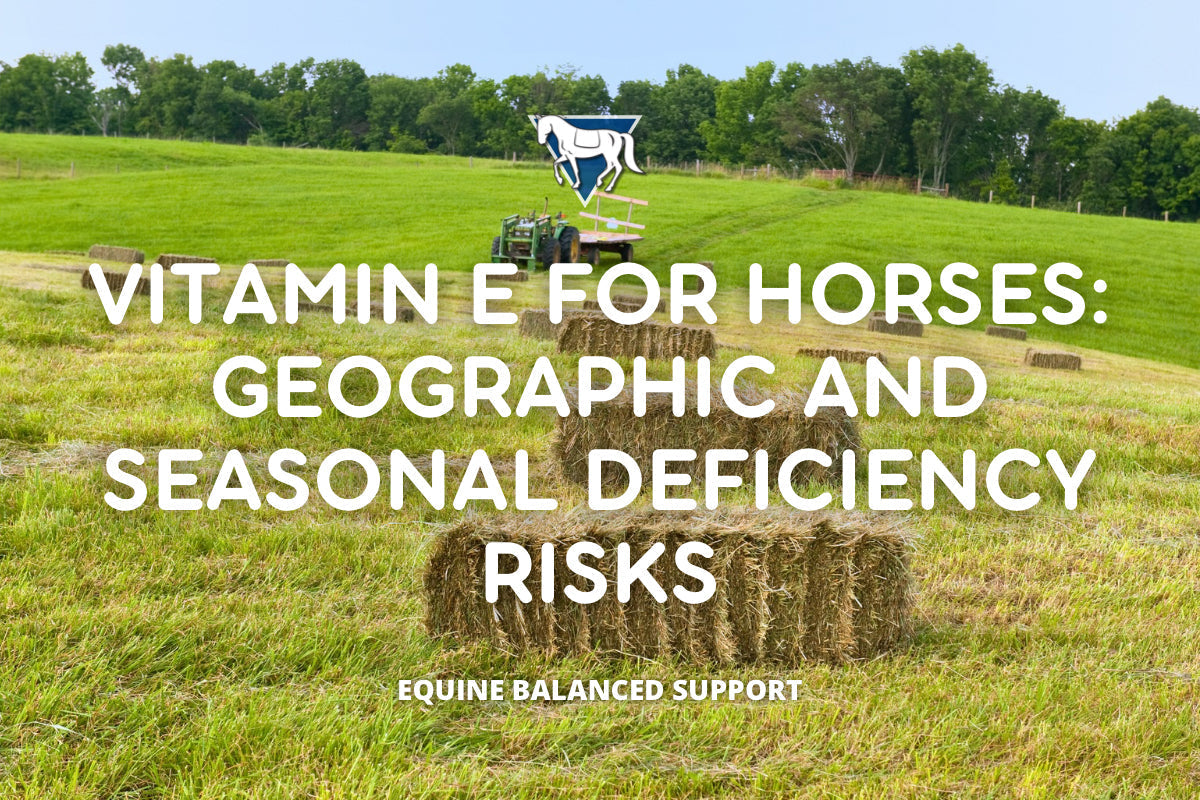Vitamin E for Horses: Geographic and Seasonal Deficiency Risks

Vitamin E for Horses: Geographic and Seasonal Deficiency Risks
Green grass doesn’t always mean great nutrition. The vitamin E content of forage depends on your region, climate, and season—and your horse’s health depends on it.
Understanding Where Vitamin E Comes From
Vitamin E is a critical antioxidant that supports nerve, muscle, immune, and reproductive health in horses. In nature, horses get vitamin E from fresh, growing forage. But not all pasture is created equal—and not all regions provide access to fresh forage year-round.
When Grass Isn’t Enough: Regional Risks
Some regions are naturally lower in vitamin E availability. If you live in or near:
- 🌵 Dry, arid climates with sparse forage
- ❄️ Cold northern regions with long winters and short growing seasons
- 🔥 Hot southern areas where pastures dry out in summer
…your horse may go extended periods without enough natural vitamin E—especially if they’re on hay or dry lot turnout most of the year.
The Seasonal Cycle of Forage Nutrition
Even in lush areas, the nutritional value of grass changes. Vitamin E levels are highest in fresh spring growth, begin to drop in mid-summer, and are almost nonexistent in fall or dormant hay.
This seasonal rhythm means your horse’s needs may shift throughout the year—even if they stay on the same pasture.
How to Know If Your Horse Is Getting Enough
The best way to find out is with a blood test. Measuring serum vitamin E levels can reveal if your horse is deficient—especially before signs like muscle tightness, weakness, or neurological issues appear.
Why Natural Vitamin E Works Best
Not all vitamin E is equal. Natural vitamin E (d-alpha-tocopherol) is more bioavailable than synthetic forms and better supports the body’s antioxidant systems. At Equine Balanced Support, we recommend starting with a proven, easy-to-feed option like:
- 🌿 Daily Natural Vitamin E for Horses – A potent, natural-source d-alpha tocopherol powder designed to support horses on hay, dry pasture, or during stressful periods like travel, rehab, or performance work.





Leave a comment